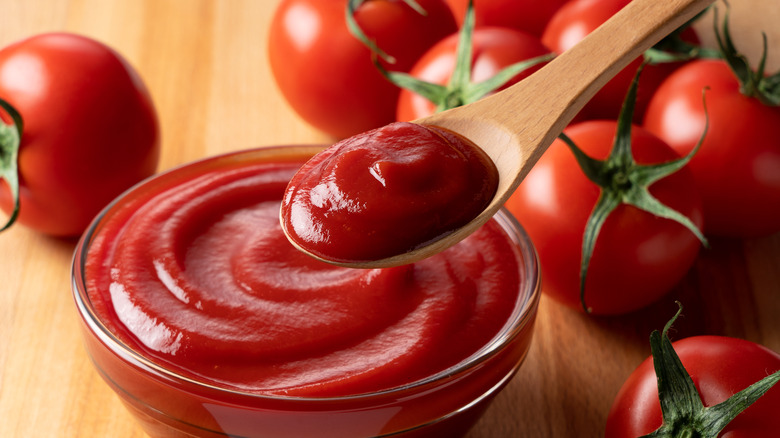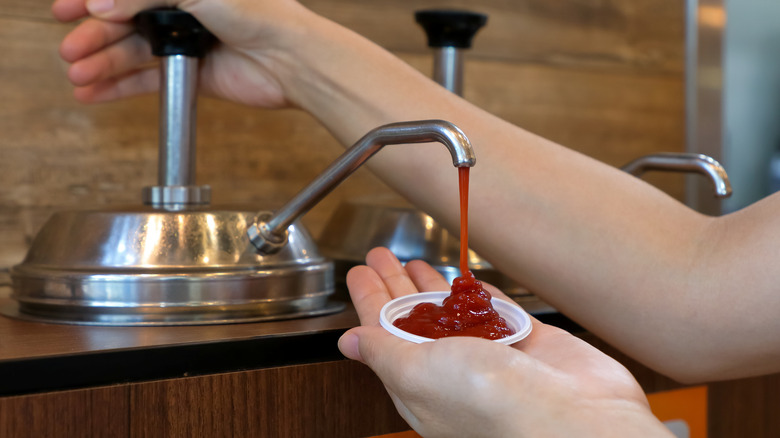The Real Reason Restaurant Ketchup Never Goes In The Fridge
There are a few less-than-perfect things that we have come to accept as commonplace when we dine out. The cutlery may be more than a little spotty, the napkin will always make its way from your lap onto the floor (and it will forever be just a hair out of reach), and the hostess will likely sit you next to the family with the screaming baby. Oh, and the condiments won't be refrigerated.
Unlike your familiar "home ketchup," the tomato sauce that hangs out at your nearest eatery is used to room temperature. This absence of cooling may have restaurant-goers confused. After all, Americans love their ketchup. According to Statista, roughly 308.39 million citizens reached for a ketchup bottle in 2020. Except the article used the word "catsup," reminding us of the old "tomato" vs. "Tomahto" argument all over again. Statista adds that worldwide, the typical person is predicted to consume just over four pounds of ketchup this year, alone. What is America's favorite brand? Data shows that the overwhelmingly preferred ketchup is Heinz, with Hunts coming in a very distant second.
Back to the restaurant ketchup and the question at hand. Why do eating establishments leave this beloved condiment to sit out in bottles and ketchup packets when most families keep theirs in the fridge?
Ketchup is said to be shelf stable
If the Heinz bottle says it should be kept refrigerated after opening, why do diners leave theirs sitting out on tables all day? The official statement from Heinz says, "Because of its natural acidity, Heinz Ketchup is shelf-stable. However, its stability after opening can be affected by storage conditions. We recommend that this product, like any processed food, be refrigerated after opening. Refrigeration will maintain the best product quality after opening" (via Today). These instructions appear simple. Keeping this condiment in the fridge prolongs its longevity, right?
Yes, it will last longer when kept chilled, but this isn't really an issue at a restaurant dishing out fries and burgers all day. As Eat This, Not That! reminds diners, an eatery likely uses as much ketchup in one day as your family will use in weeks or months. Their ketchup will never get the chance to become "unstable." Cheatsheet does, however, say that the practice of "marrying ketchup" — pouring the remaining contents of several ketchup bottles into another — is more concerning, listing it as one of the grossest "things restaurants do to save money."
If the state of your favorite eatery's ketchup has you concerned, you could learn how to make ketchup for yourself or you could follow Jerry Seinfeld's television show example. He opted to bring his own pancake syrup to Monk's Café. Just keep your ketchup well-concealed, so you, too, don't get in trouble for bringing in "outside condiments."

